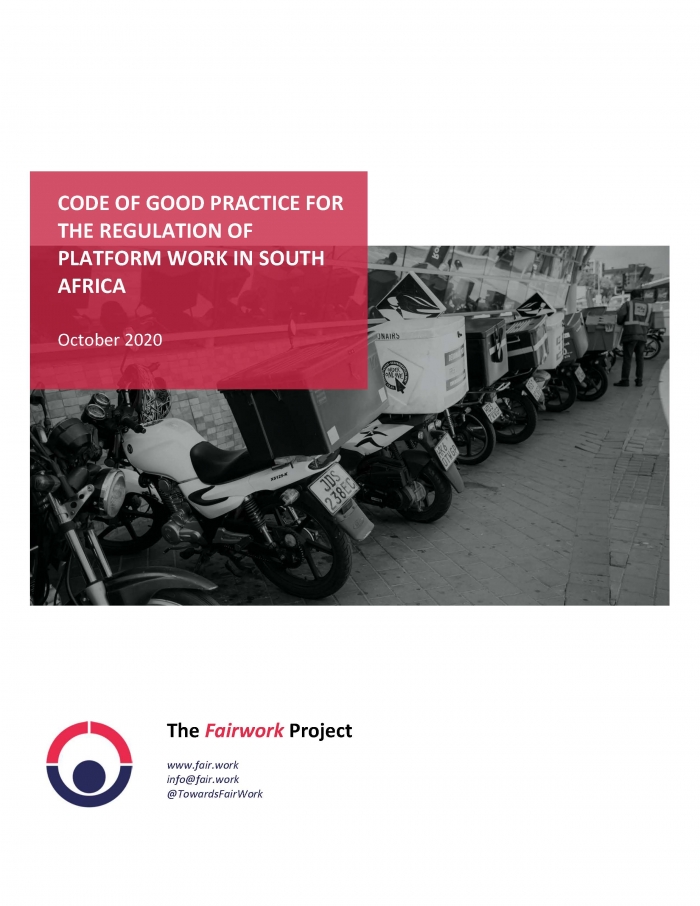Code of Good Practice for the Regulation of Platform Work in South Africa


The proposed Explanatory Memorandum and Code of Good Practice (henceforth ‘the Code’) aim to demonstrate how South African law can be interpreted and applied in order to give better protection to the rights of platform workers in accordance with Constitutional principles. Based on two years of in-depth research on the promotion of decent work for platform workers in South Africa, and parallel research in India and other countries, it provides an evidence-based contribution to an issue that has become pressing, particularly in the light of the Covid-19 epidemic. The Code draws on legal sources, at national and international level, to provide guidelines to platforms and workers as well as legal decision-makers for protecting the rights of platform workers within the existing legal framework and also highlights areas where legal reform will be needed in order to address the problems more effectively.
Suggested citation:
Fairwork. 2020. Code of Good Practice on the Regulation of Platform Work in South Africa. Cape Town, South Africa; Oxford, United Kingdom.